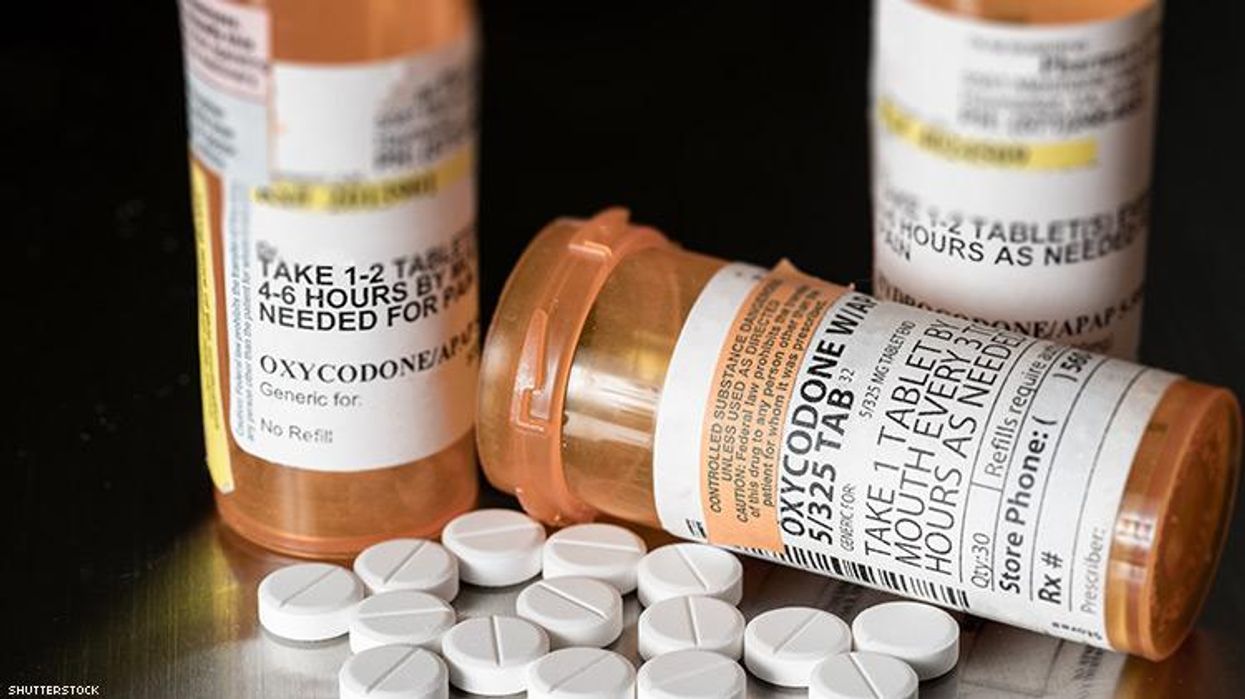Bisexual women are more likely than gay/bi men, lesbians, and heterosexuals to struggle with opioid misuse, according to a national study that analyzed data from roughly 42,800 people across the United States. In fact, after controlling for other demographic factors and confounding variables, bisexual women were twice as likely as heterosexual people for opioid misuse, which is defined as using prescription pain-reliever drugs in ways that were not directed by a doctor. Nevertheless, not all researchers agree on the interpretation of the data.
Dr. Dustin Duncan, an associate professor in the Department of Population Health at NYU School of Medicine, and a team of researchers published the results in the American Journal of Preventive Medicine, claiming this is the first nationally representative sample of adults in the United States to look at sexuality as a risk factor for opioid misuse.
Given the correlative nature of the study, the researchers could only hypothesize why bi women seemed at a greater risk for abusing opioids. Duncan did, however, tell the Washington Post that he believes the "minority stress model" could help explain the troubling trend for bi women. In short, this model posits that marginalized individuals have worse mental and physical health outcomes -- including drug use -- because they have to cope with discrimination and stigma.
Bisexual women, Duncan explained, "are a minority within a minority." Because of this, they face what's often called double discrimination. Bi women aren't fully accepted by their straight or lesbian peers. These feelings of isolation can cause stress, which could drive bi women to misuse opioids.
Dr. Sabra Katz-wise, an Assistant Professor at Harvard Medical Center whose research focuses on bisexuality, seconded Duncan's hypothesis.
"I think the primary reason why bisexual women may be at greater risk for abusing prescription opioids is exposure to unique forms of bisexual-specific prejudice and discrimination that create stress," she told OUT.
These forms of bi-specific prejudice include being told that bisexuality isn't a legitimate orientation, being felt forced to "pick a side," or the number of stereotypes both gay and straight people believe about bisexuals (i.e., they're cheaters, incapable of being monogamous, greedy, confused, etc.).
Rhonda Balzarini, a postdoctoral research fellow at York University whose research focuses on LGBTQ and polyamorous communities, also believes that being closeted or rather, being able to "pass" as either gay or straight may contribute to the increased rate of opioid misuse in bi women. She called this having a "concealable stigmatized identity."
She explained to OUT, "This phenomenon involves a socially devalued attribute that people can keep hidden, as is the case with one's sexual orientation. While LGB individuals can conceal their orientation, this can be strenuous because it requires monitoring and attending to aspects of social presentation and lifestyle that are typically overlooked."
Balzarini continued, "Research has shown that concealment is associated with a host of adverse outcomes, such as greater depression, anxiety, suicide ideation, and lower self-esteem, social support, and willingness to seek out psychological services."
Bisexuals, in general, are significantly less likely to be out than the gay men and lesbians. Pew research found that only 28% of bisexual people said "most or all of the important people in their lives" knew about their sexual orientation, compared to 71% of lesbians and 77% of gay men.
Further breakdown of the analyses, however, reveals that the Post maybe overstating their claim. The study's results tend to focus on bisexual women as the outlier -- but this may be a little bit misleading according to Eric Schrimshaw, an associate professor of sociomedical sciences at Columbia University Medical Center. Schrimshaw points out that the results show bisexual women don't differ greatly in rates of opioid misuse from bisexual males, who don't differ dramatically from heterosexual men. Thus, an alternative conclusion could really be that heterosexual women misuse opioids at a lower rate than their peers.
"Thus," Schrimshaw concluded, "the main reason why bisexual women appear to been found significant is not that their opioid misuse is higher than everyone else, but rather the fact that they were compared to heterosexual women who have the lowest opioid misuse."
A major reason the study gained headlines recently has to do with the fact that the women are often overlooked in the opioid epidemic. Joseph Palamar, the senior author ot the study, told the Post, "Typically women are more protected against drug use. It's usually the men we worry about."
The current opioid epidemic has also called into question the intersection of race and misuse. Whereas Congress passed tougher prison sentencing laws in the 1980s to deal with the rise of crack cocaine use, legislators are currently responding to widespread opioid use with an emphasis on funding research into what they call a "public health crisis."
Rep. Cedric Richmond (D., La.), chairman of the Congressional Black Caucus, believes Congress's change of heart lies in the fact that the opioid crisis isn't "ravaging solely the African-American community like crack was doing."
In 2016, white victims made up roughly 80% of the deaths from opioid overdoses, with black victims comprising 10% of deaths and Hispanic victims 8%, according to the nonprofit Henry J. Kaiser Family Foundation. Comparatively, in 2000, 84% of crack cocaine offenders were black, compared with 6% white, according to the U.S. Sentencing Commission, a bipartisan, independent agency created by Congress to reduce sentencing disparities.
While acknowledging that policymakers are now taking the correct approach to dealing with drug use, Richmond remains frustrated by how people of color were treated during the crack epidemic.
"We learned from how bad that approach was, so now we're treating it as a mental-health and a substance-abuse problem--which it is--for opioids. But it was for crack, too, and we still won't go back and fix it," Mr. Richmond said.
Related: STUDY FINDS MORE GAYS THAN STRAIGHTS STRUGGLE WITH ALCOHOL AND DRUG ABUSE






























